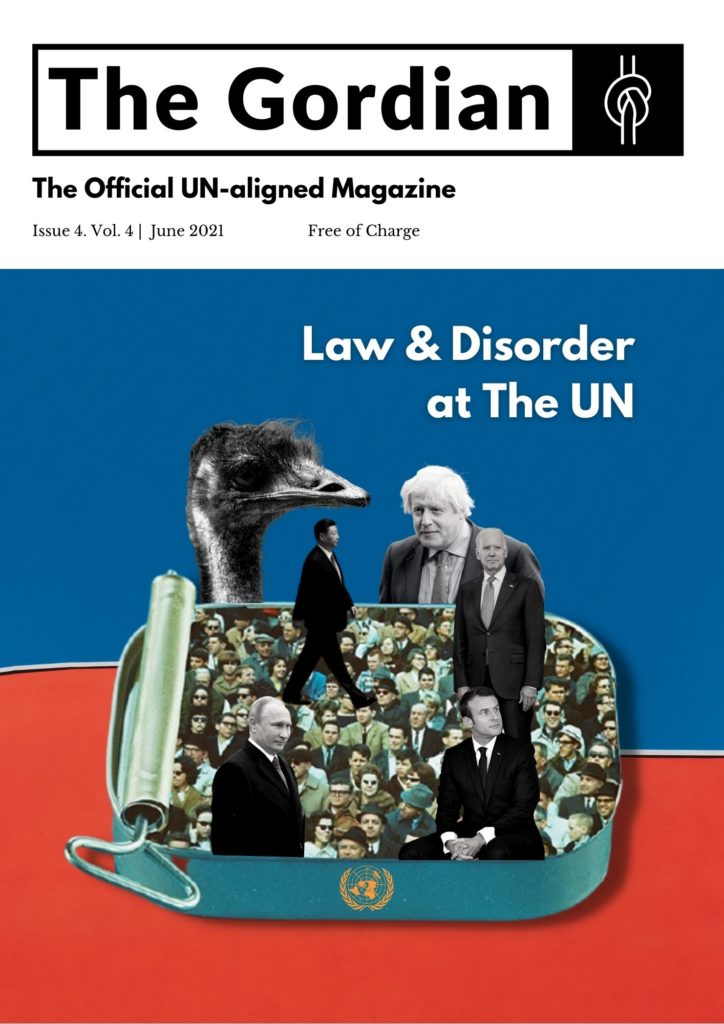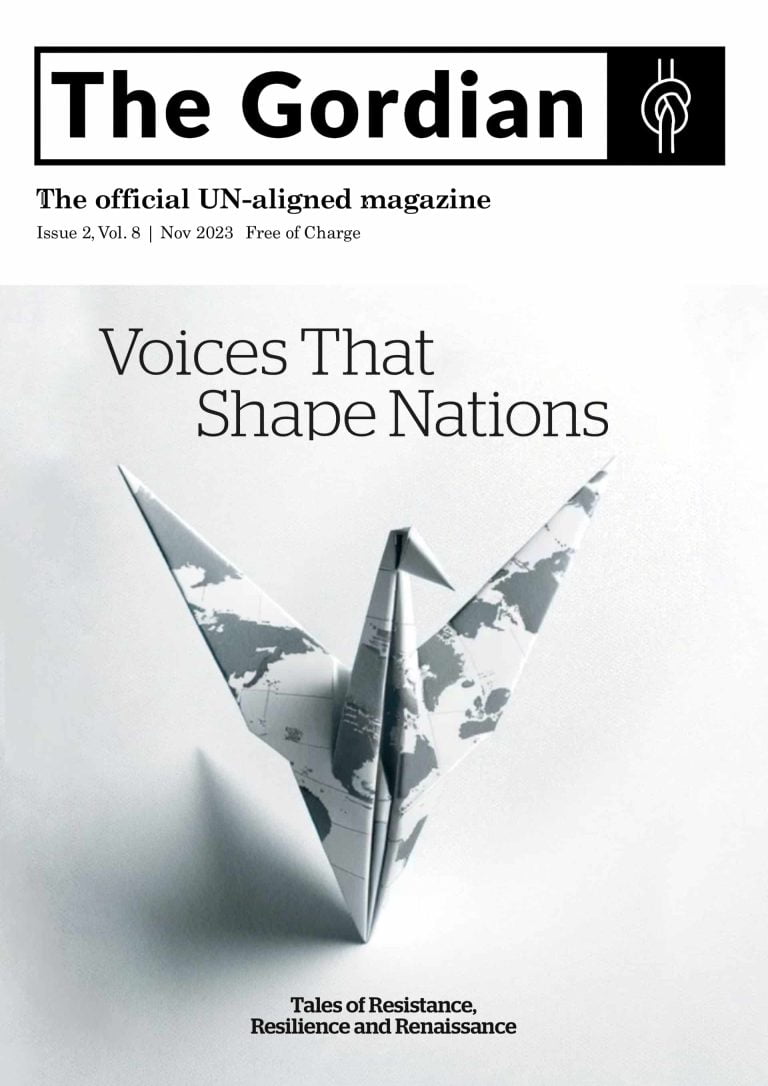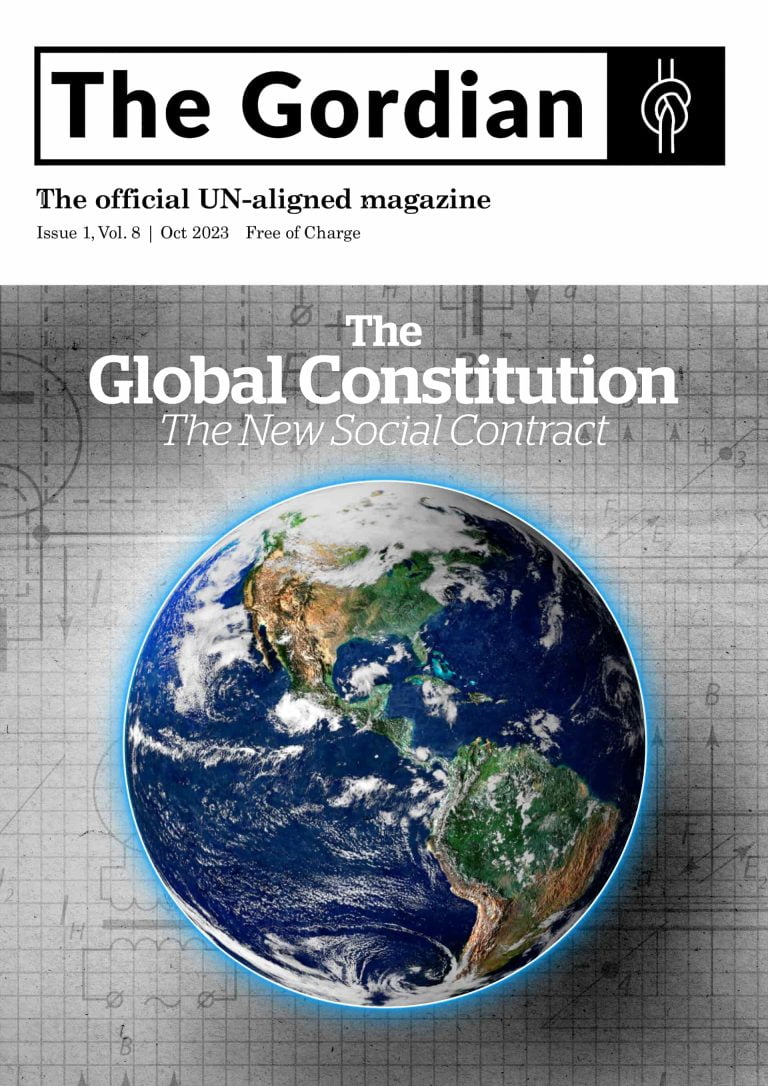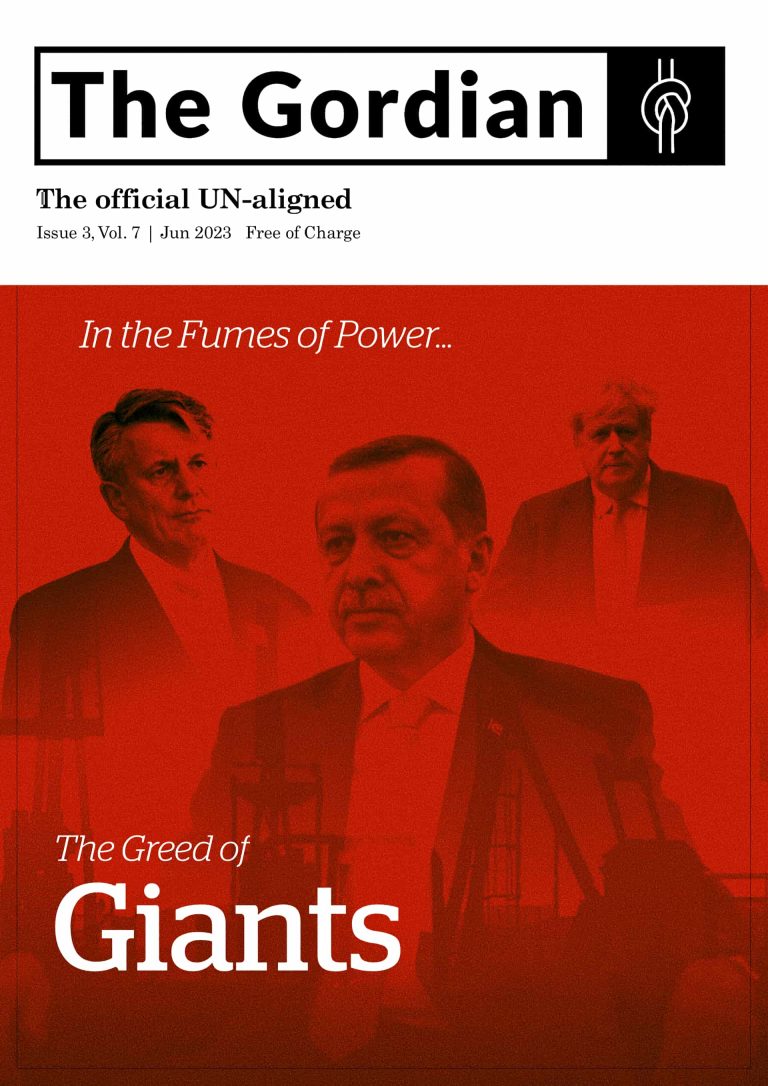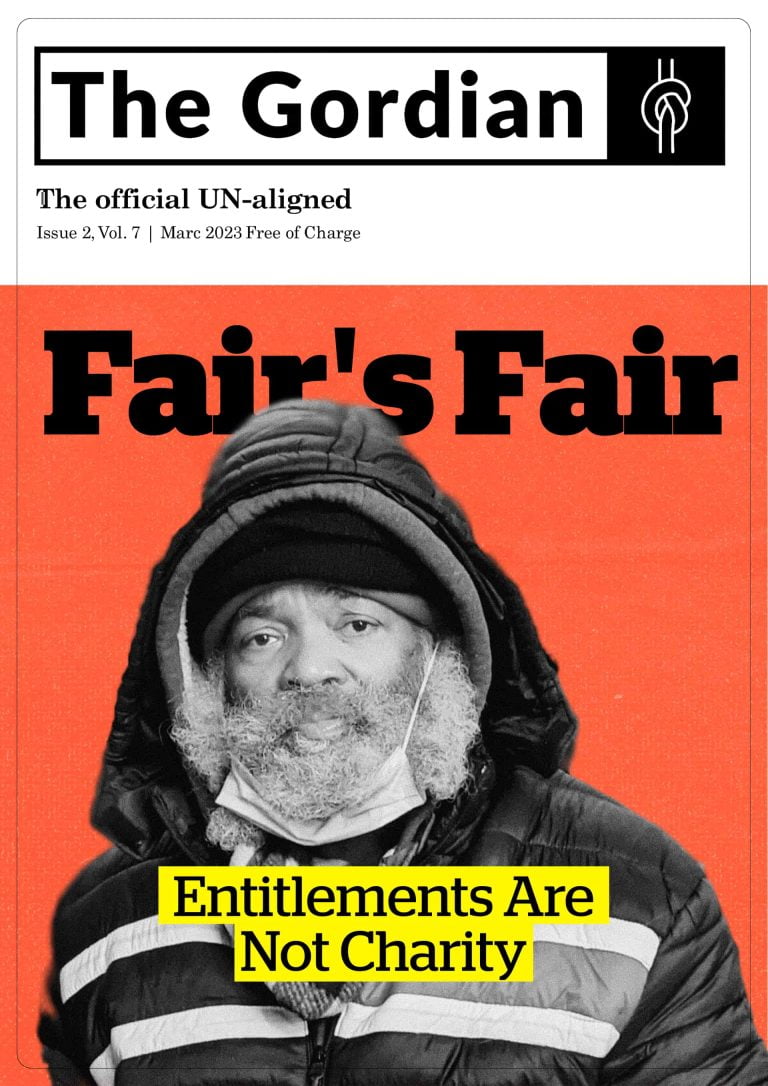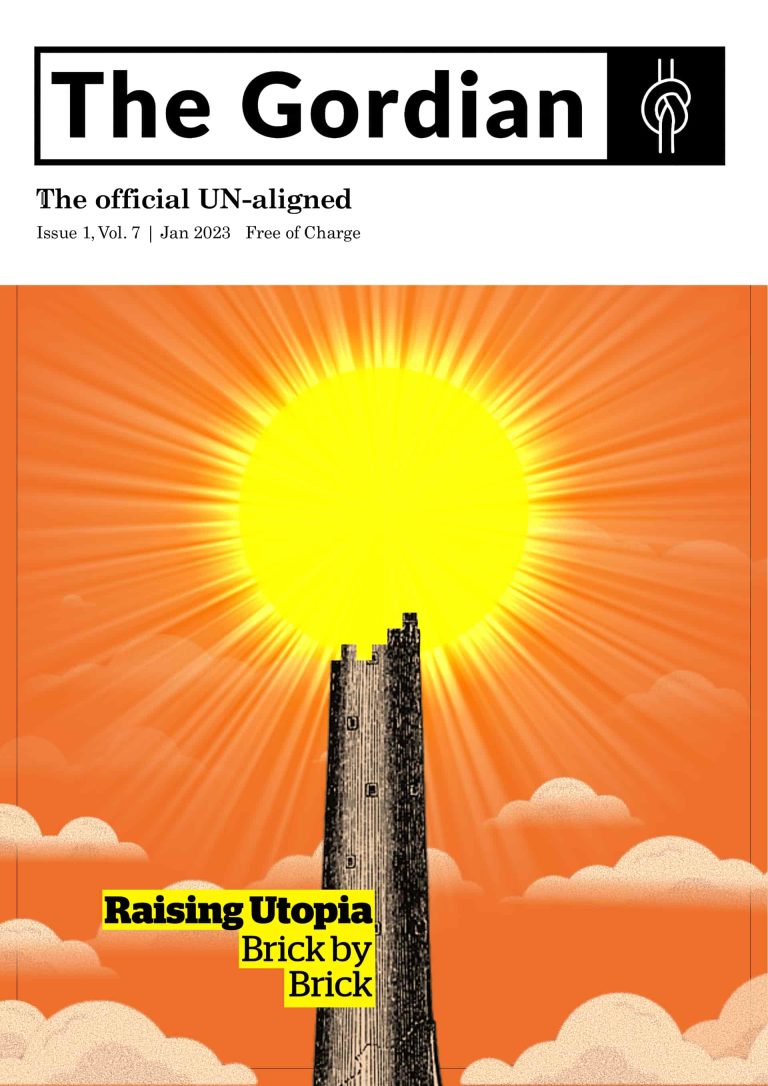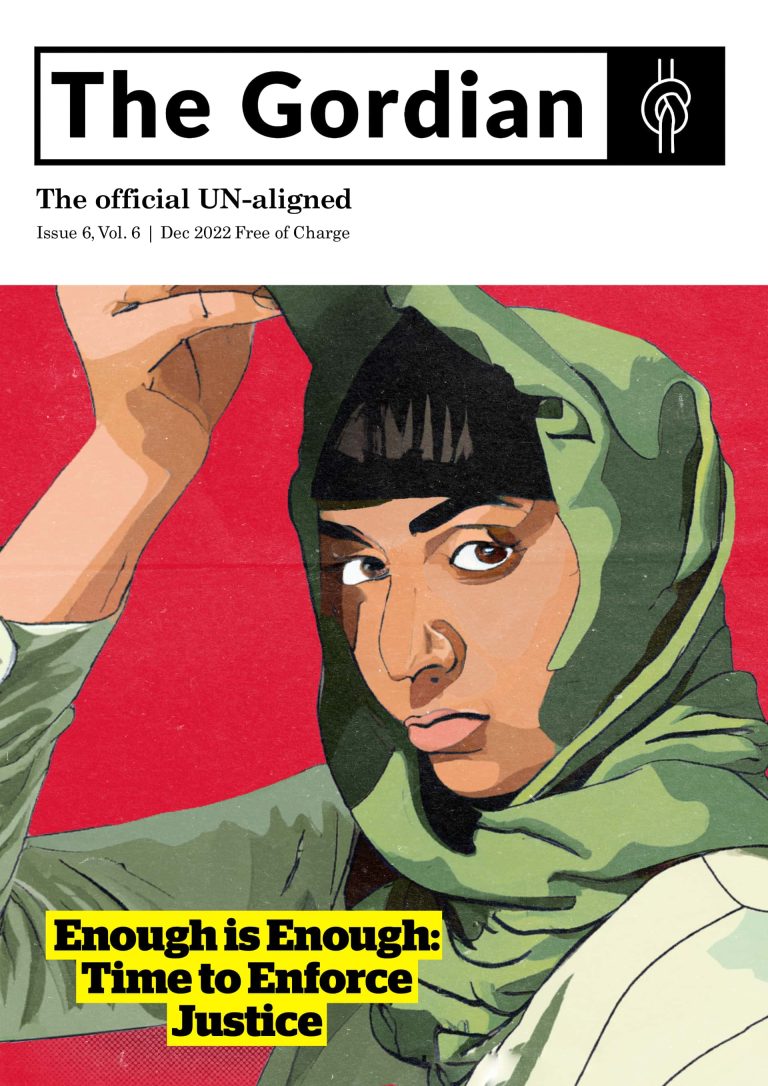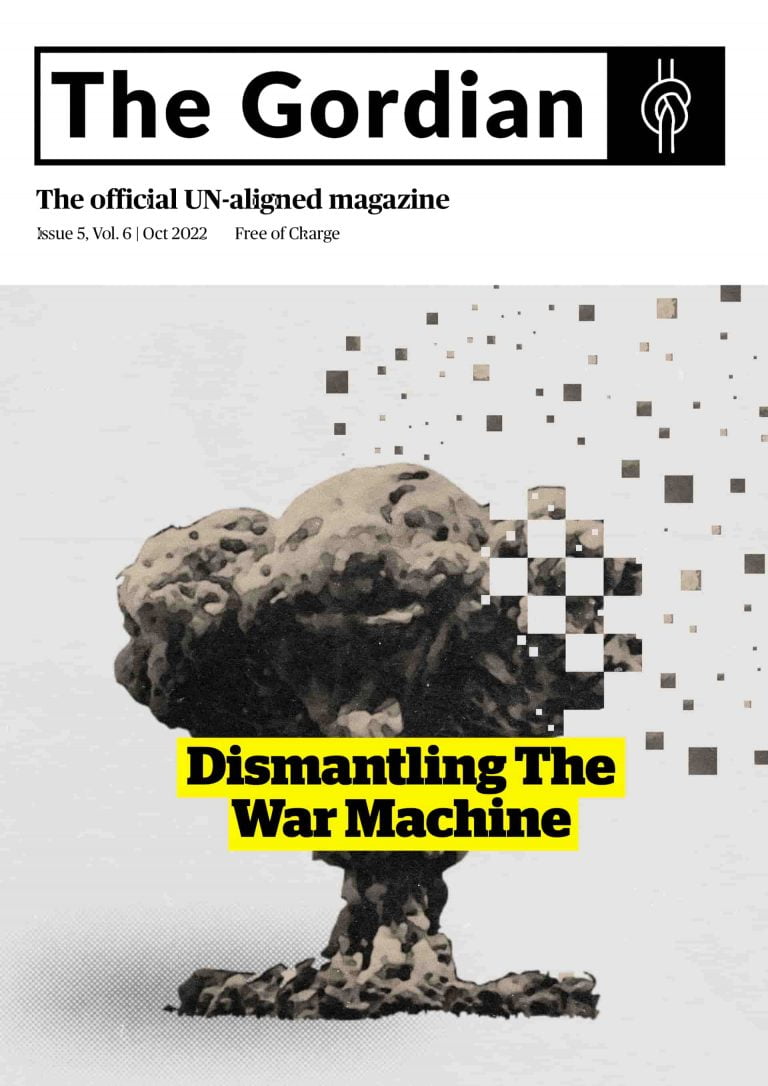UN in Focus – May 2021: The good, the bad and the ugly
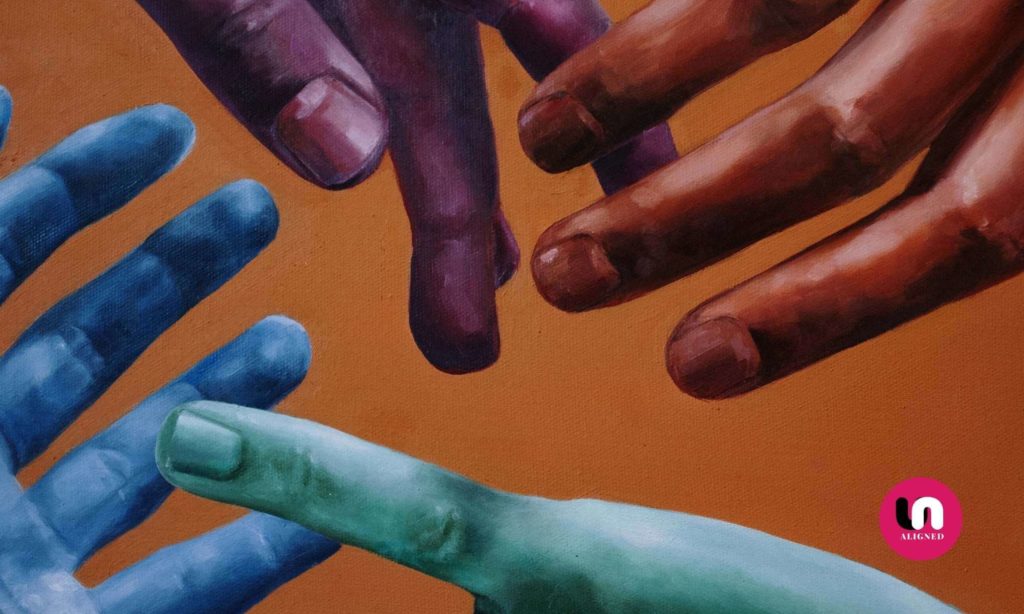
By Adrian Liberto
The good: battling for universally affordable and available vaccines
The United Nations Committee on Economic, Social and Cultural Rights released a Statement on May 11 calling for COVID-19 vaccines to be universally affordable and accessible. The five-page document covered all the main issues comprehensively and with refreshing lucidity.
The Statement starts by highlighting the fact that everyone has the right “to enjoy the benefits of scientific progress and its applications” and proceeded to lament “the current unhealthy race among States for COVID-19 vaccines, which has created a sort of temporary monopoly by some developed States of the first vaccines to be produced.” This is underscored by the fact that current production capacity is at its limit in as much as stocks are already sold out through public procurement by such States. This has created an unacceptable situation of “health isolationism”.
The report goes on to confront the property rights regime. Whilst it acknowledges that it is fair that “private business entities or public research institutions that created the vaccines, albeit with huge financial support from public funds, receive reasonable compensation for their investments and research”, it points out that “intellectual property rights are not a human right, but a social product, having a social function”. Countries, therefore, have an obligation “to protect public health” and confront, whenever necessary, greedy attempts to undermine this through protective regimes, such as legal patents.
The Committee emphasises the fact that preventing deaths and bringing the pandemic under control is the number one priority and it calls for urgent international action to address the unequal global distribution, which is responsible for exacerbating the situation. Recommendations also include the sharing of information, technology pools, and “waivers of certain intellectual property provisions or market exclusivities”.
The bad: powerless in the face of violence
Once again, the United Nations was left powerless in the face of a major conflict owing to its defective mechanisms. On May 10, intense fighting erupted between Israel and Gaza that lasted for 11 days. Hamas rockets killed ten Israelis, including two children, while Israel’s bombing campaign killed well over 200 people including scores of children. Many civilian buildings were destroyed, including Gaza’s largest library and the tower block housing the offices of the Al Jazeera and the Associated Press (AP). In the aftermath, the UN Agency for Palestinian Refugees is trying to raise for $38 million for emergency aid in Gaza, but this will hardly begin to tackle the insurmountable problems Gaza is facing.
The UN’s attempts at halting the violence were primarily undermined by the US, Israel’s long-time ally. After the US blocked at least four attempts by the Security Council to issue a press statement condemning the violence, France drafted a resolution calling for an immediate ceasefire, but this too was vetoed by the US claiming that it would undermine its diplomatic efforts. The situation highlights the flawed nature of the UN Security Council, which is at the mercy of the Five Permanent Members and their geopolitical agendas.
Actions are one thing, however, and words, another. Nothing could stop UN Secretary-General Antonio Guterres from stating that he was “dismayed” and “deeply disturbed” by Israel’s actions. Moreover, the UN Human Rights Council also took a more robust approach to the Israeli attacks on the besieged enclave, home to two million people. Michelle Bachelet, the UN Rights Chief, launched an inquiry into the bombing of Gaza, stating that the strikes by the Israeli military could constitute “war crimes” if proven to be disproportionate. Still, the UN should be in a position to focus on prevention rather than cure.
The ugly: betrayed by its own members
The latest UN financial Report by the Secretary-General released on May 11, 2021 paints a bleak picture of an organisation struggling to meet its commitments owing largely to Member States failing to honour their financial obligations vis-à-vis their agreed yearly contributions. So far, this year only 50 Member States paid their contributions in full, namely: Armenia, Austria, Azerbaijan, Bahrain, Barbados, Belgium, Bhutan, Botswana, Bulgaria, Canada, China, Cyprus, Czechia, Denmark, Estonia, Finland, France, Georgia, Germany, Hungary, Iceland, India, Ireland, Japan, Kazakhstan, Latvia, Liechtenstein, Lithuania, Luxembourg, Malaysia, Malta, Monaco, Netherlands, New Zealand, Nicaragua, Niger, Norway, Poland, Portugal, Qatar, Republic of Korea, Republic of Moldova, Romania, Samoa, Singapore, Slovakia, Spain, Sweden, Switzerland and Thailand. Only China and France, from the permanent members of the Security Council, are in the list. The US is notoriously lax when it comes to paying its dues and owes the UN vast sums of money.
The deficit and uncertainty have forced cutbacks and they hamper the smooth running of the UN and its operations. This regularly forces the organisation to rob Peter to pay Paul. In this scenario, Peter is often UN peacekeeping missions. Indeed, the UN could no doubt tighten its spending even further if it spent its money more wisely (refer to my book: Unravelling the United Nations for more details on this), nevertheless, the issue here is not value for money, but having the money in the first place.
The fact that the UN is not in a position to enforce the payments is, of course, a big part of the problem. If a person stopped paying for their gym membership, they would expect to be barred from it fairly promptly. The UN, however, appears to have less leverage on its members than a simple gym and sadly its members are aware of this and often take full advantage of its weakness. This can only spell serious problems for the UN in the long run. In the words of António Guterres:
“The trend of collectively paying less in each year than the regular budget assessments must be urgently reversed to avert a crisis in budget implementation and mandate delivery.”
Would you like to improve your writing skills?

Don’t miss out on this fantastic free online writing masterclass.
Join this practical and informative online workshop, which will culminate in a published article in The Gordian.
In the space of just five lessons, starting on the first of July, Adrian Liberto, author, journalist, a former professor at the American University of Rome and current editor-in-chief of the Gordian Magazine, will teach you how to overcome your weaknesses in writing.
Adrian will use his vast reserves of experience and enthusiasm to give you an overall assessment of your writing strengths and weaknesses and how to maximise the former and overcome the latter. This is an unmissable opportunity for anyone looking to sharpen their journalistic skills. After the course you will be offered the opportunity to send your piece for publication in the Gordian, UN-aligned’s monthly publication.
Course content
Stage one (starting on the 1.07.2021): This will consist of an individual initial assessment and a Zoom meeting where your chosen topic will be discussed and the framework for your article agreed.
Stage two: Your outline will be refined and you will be given guidance on how to research your article adequately and how to select appropriate material.
Stage three: Your first draft will be returned to you with corrections and suggestions in order to improve your vocabulary, grammar and style, particularly with reference to getting your message across convincingly and effectively.
Stage four: Your second draft will be polished and edited. You will receive detailed feedback on final alterations.
Stage five: You will receive an overall assessment of your writing strengths and weaknesses and how to maximise the former and overcome the latter.
Requirements
- You will need to be a member of UN-aligned. If you are not a member, you can register for free here.
- You will be willing to send your completed article for publication.
- You will be self motivated and available to work within agreed timescales.
- Basic communication skills in English
This course is for…
- Aspiring and freelance journalists.
- Anyone who writes a blog and wants advice on how to improve their writing.
- Anyone who works for NGOs and wants to submit pieces to editors to promote a cause that’s important to them.
- Those wishing to improve their writing skills to convey a point of view.
Tutor profile
Adrian Liberto is the Coordinator and Editor-in-chief of The Gordian Magazine. Graduated with a masters in journalism, he is also the author of Unravelling the United Nations, a book on the shortcomings of the UN. Adrian has lectured at various universities, including the American University of Rome as a business writing professor.
Price of the course
Free of charge
Course capacity
Please note that this is an individual course and owing to its nature of teaching method it has a limited capacity of 5 people. So we encourage you to apply as soon as possible.
We will arrange another writing programme in September 2021, so if you prefer to attend that, please make sure to specify that in the application form.
“Abandon all hope ye who enter here”: The shitshow that is the UN Security Council
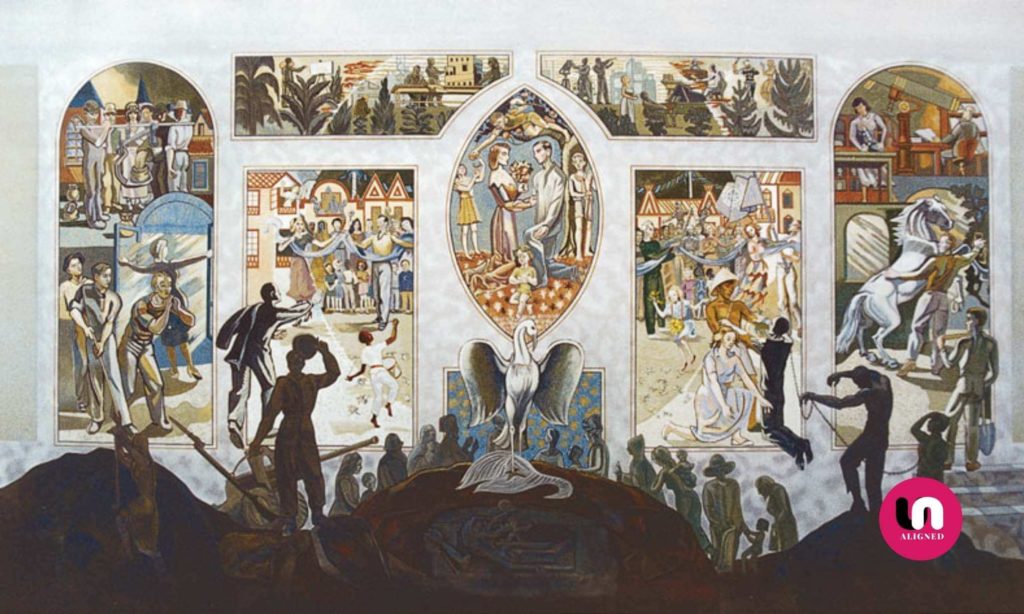
By Ariana Yekrangi
Is it becoming obsolete?
Well, it is not that the Security Council is no longer fit for purpose, it has never really been designed to fit its purpose. In 1946, after the League of Nations ceased its operations, the Security Council was invested with most of the power of the brand new organisation, the United Nations. The five winners, let’s face it bullies, of the war, none of whom possessed any moral authority, were tasked with one noble purpose: to advocate peace. What could possibly go wrong with tasking a group of warlords with the maintenance of international peace and security?
Turns out everything. Today, the UN Security Council, whose permanent members are now nuclear-armed states, is notorious for fuelling conflicts in the world through its permanent members’ respective agendas and uncontrolled vetoes. The security council is the only body with the authority to enact legally binding resolutions that can be enforced by questionable sanctions imposed on other countries. These resolutions and sanctions are, of course, periodically ignored by member states, with impunity.
How are resolutions passed?
The Security Council consists of fifteen, five permanent and 10 non-permanent, members of the United Nations. The voting system within the Security Council is quite simple. A proposal regarding procedural matters requires nine positive votes in order to pass, while for all other rulings, the nine positive votes must include “the concurring votes of the permanent members”. This is what everyone talks about when they refer to the ultimate “veto” (Article 27).
A permanent member can, however, abstain. It is in fact required to do so when they are “party to a dispute”, but let’s face it: everyone wants to have the cake and eat it too. In recent times, east-west antagonism has brought back paralysis when it comes to major crises and so far, the veto has allowed for gross injustice and abuse. Of course, there is one more aspect which most people seem to miss. This is the concept of “hidden” veto, which refers to the times when a resolution is not even tabled due to threats of a veto from one of the permanent members.
But how exactly have our bullies misused their power?
Over the past five decades, the United States has vetoed at least 53 UN Security Council resolutions critical of Israel.
Russia on the other hand has certainly been the star of this shitshow, with over 117 vetoes since 1946, an average of 1.5 vetoes a year. Most of the recent Russian vetoes have been triggered to avoid scrutiny over its actions in Ukraine or to protect allies, such as the Syrian regime, from UN pressure.
China, too, often abuses its veto power, usually in tandem with Russia, to ensure the remaining of the Syrian dictator for example.
France and the UK have been more reserved when it comes to casting a negative vote. In 2015, for example, France even tried to limit its use in cases that could lead to genocide, but their proposal was dismissed by Russia as “populist”.
To this day, calls for the UN to be reformed constitute a recurring theme of the yearly General Debates, but the UN is fettered by permanent members of the Security Council and unable to make any significant progress.
The UNSC peacekeeping mission is a whole other can of worms
To say that some of the UN’s peacekeeping missions have been controversial is a grotesque understatement.
The Charter of the United Nations gives the Security Council the power and privilege to take collective action and maintain international peace and security through the authorisation of blue-helmeted peacekeepers or by force of arms.
On numerous occasions, like South Sudan, the Central African Republic or the Democratic Republic of Congo, troops had failed to achieve their core mandates, namely “to protect civilians under threat of physical violence with specific protection for women and children”. In some cases, eyewitnesses said women and girls were raped near UN compounds with no action from peacekeepers.
Of course, one would wish that the incompetence of the troops was the only problem. In 2015, a UN inquiry named 41 peacekeepers in relation to alleged sexual abuse and exploitation in the Central African Republic. Women and even minors were reportedly abused in exchange for food and clothing.
Despite all the horror stories, few peacekeepers are prosecuted. Shockingly, intervention often occurs in countries with failed judicial systems.
Is there a better system?
76 years on, hardly anyone claims the Security Council is representative or fair. There are for example no African or Latin American states among the permanent members. Initiatives like the Ezulwini Consensus demanded full African representation at the Security Council. Many have even argued that India, a fast-growing economy, also deserves a seat at the table. There are also jealous regional rivals who don’t want to see their neighbours succeed.
However, it is highly unlikely that a bigger council would bring about any effective change. In fact, it is very likely going to make it worse. If you have thought the US, Russia and China are greedy, just wait until the right-wing governments of India’s Modi or Brazil’s Bolsenaro and other frantic leaders who defy human rights regularly join the table. Then, you will truly get the real theater of the absurd.
The United Nations was created precisely with the “Four Policemen”, the US, the UK, the USSR and the Republic of China, in mind. It is unlikely to imagine an organisation without these four at the helm.
However, UN-aligned offers an alternative. Click here to see how to Unravel the United Nations.
Towards Comprehensive Global Justice
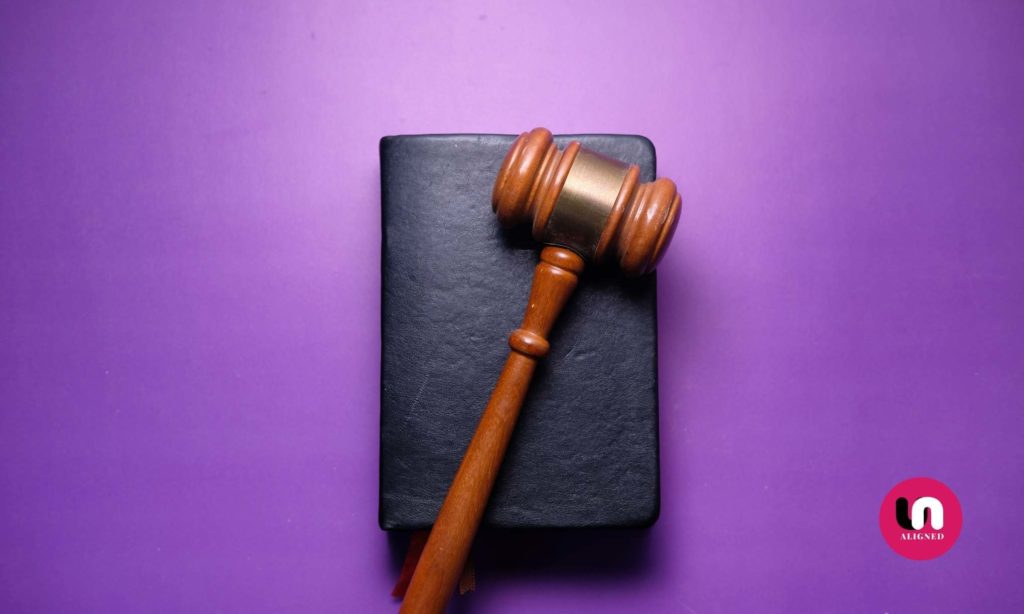
By Adrian Liberto
In an article in last month’s issue of The Gordian, I highlighted some of the weaknesses of the International Court of Justice (ICJ) and the International Criminal Court (ICC). Whilst these bodies are merely a part of a wider international legal system that is also governed by various treaties, conventions and accords, they are pivotal in as much as their focus is on safeguarding human life and world peace. My conclusion was that these two institutions were flawed, compromised and generally ineffective. In this issue, therefore, I intend to offer some concrete ideas for a robust legal system.
When, in the 6th century B.C.E., the Scythian philosopher Anacharsis was told by Solon that he was compiling a list of laws, the Scythian laughed, claiming that laws were like spiderwebs: they catch the weak and helpless, but let the powerful rip through. Not much has changed since then. An 18th century English nursery rhyme puts it nicely:
They hang the man and flog the woman
That steal the goose from off the common,
But let the greater villain loose
That steals the common from the goose.
The law demands that we atone
When we take things we do not own,
But leaves the lords and ladies fine
Who take things that are yours and mine.
International law is not that different. Countries with the greater firepower often terrorise the weaker and their crimes go unpunished, while within a country, those with power often abuse it to the detriment of its law-abiding citizens. The problem is that in order for international law to be effective it needs four pillars to sustain it.
- Laws that protect humanity and the environment in ways that transcend cultural and religious bias
- Mechanisms for these laws to operate speedily and fairly with regards to investigations and judgement
- Just deterrents and proportional interventions once judgement has been passed
- The means to enforce compliance.
Let us look at these pillars more closely…
Laws that protect
We may think that at least in principle, international law covers the most essential points relating to the guaranteeing of world peace and protection against crimes against humanity, but think again. Until war is made illegal, ruthless people will always find loopholes in order to invade, kill and pillage. Article 6 of the UN-aligned manifesto addresses this point clearly:
War is an unacceptable way of resolving differences, or crimes committed by one country against another.
War should not be glorified with epithets like ‘just’ or ‘holy’; nor should it be legitimised with conventions aiming at damage limitation. Differences between nations need to be arbitrated in accordance with international law, just as personal or municipal conflict is now subject to national laws. Crimes committed by one nation against another should therefore be dealt with by international law enforcement officers or police. Combatants on the side of the aggressor will be criminals. Countries can no longer be allowed to use the term ‘soldier’ or ‘patriot’ to justify the deployment of people to commit crimes…”
Of course, this is easier said than done. Technically, war is illegal. The 1928 Kellogg–Briand Pact (The General Treaty for Renunciation of War as an Instrument of National Policy) is still in effect. It was signed by most nations including the United States, Germany and France, who were amongst the first. Signatories pledged to resolve “disputes or conflicts of whatever nature or of whatever origin they may be, which may arise among them” without resorting to warfare. Despite this, however, it is business as usual when it comes to buying and selling arms and using them for political or territorial gains. If laws are not taken seriously, they are just pieces of paper that simply serve to blot away the drive towards any meaningful safeguards.
Just look at Israel’s recent bombardments of Gaza and how many civilians have lost their lives, including scores of innocent children. What right does an adult have to disregard a child’s life to the point where it is considered acceptable collateral damage? Any life, for that matter, is sacred, especially innocent ones. Unlike Palestine, which is not a full member of the United Nations (UN), Israel is, and it is operating an apartheid system that continues to steal land and homes form Palestinians, and yet it seems that all the UN and the international courts can do is wag a finger at its rogue member. The Security Council cannot even do that, as the recent spate of aborted meetings shows.
Indeed, Israel is but one of many violent UN Member States. So, clearly, laws alone are insufficient. Nevertheless, they are a necessary first step in the process. Where are the laws criminalising ecocide, homophobia and animal abuse, for instance? Laws need to be consistent and comprehensive in their protection of human and environmental rights. Sadly, religion has a lot to answer for when it comes to these omissions, but that is another story.
Effective mechanisms, deterrents and interventions
So, we need laws and laws that are taken seriously. The only way to show that they are worth more than the paper they are written on is to ensure the structures are in place for these laws to function effectively. Last week I discussed how the ICC has been wasting millions of dollars since 2002 with very little to show for it. I also explained how the ICJ operates with the enemy within its walls and does so to such an extent that, as Anacharsis would say, it allows greater beasts to dart through its web. The law must be flexible, but there can be no loopholes. So here are some prerequisites for decent legal system:
1. Laws need to be backed by an authority with the power to enforce them. It is all well and good to say that war is illegal, but unless there is a body responsible for making the law stick, the law will live in a parallel world that only serves to create the illusion of justice.
2. Laws must be comprehensive. They must target all forms of injustice, including those sanctioned by powerful bodies, such as many governments, religious organisations and multinational corporations. True there is a massive difference between labelling crimes and dealing with them, as we will discuss below, but any vagueness only encourages contempt for justice.
3. Processes have to be fit for purpose. The ICJ is dependent on both parties of a conflict agreeing to its adjudication. This ensures that only doubtful issues end up on its desk. Cases of blatant aggression like Russia’s annexation of Crimea, or Israel’s abuses in Palestine, zip through. Other forms of aggression, like the military takeover in Myanmar can be brushed aside as internal matters, as China keeps doing at Security Council meetings. An international court with such inherent flaws cannot be said to be fit for purpose.
4. Decent processes include reasonable timescales and budget limitations. Anything less encourages deviousness and delays, like the story of the two men fighting over a cow, with one pulling at it from its horns, the other from its tail, while the lawyer happily milked the animal. Of course, every case is different, but this does not mean reinventing the wheel every time.
5. Justice must be preventative in nature. When it comes to administering justice, one must not confuse justice with revenge. Nor is it just about compensating the victims and setting things right, though it is about that too. An important aspect of justice is prevention; making the perpetrators understand that they have more to lose than to gain by being an aggressor. Some multinationals calculate that they have more to gain by breaking the law and paying the stipulated fines than by playing by the rules. Moreover, they may not even get caught at all. If it had to be put into an equation it would look like this: Penalty + Maximum Profit = Sufficient Profit. The same equation can apply to politics. One may argue that it is better to have weak deterrents that are enforceable than robust ones that are only so in theory. However, that is bowing to the mantra that “might is right” and it just perpetuates a travesty of justice.
Enforcing the law
This brings us to our last pillar, enforcement, which is the one that is often so shaky that it allows the whole structure to collapse. Indeed, when power rests with the corrupt and self-serving, there is only so much that can be achieved. This is all the more difficult when dealing with nation States. How to end the occupation of Palestine, for instance, when the US and Israel hold most of the cards? Nevertheless, despite this law of the jungle reality, there is still much more that can be done. If the UN was not compromised, there would be a range of things it could do, as the body representing world order, to punish aggression.
First and foremost, it could expel nations that break international law. True, that would leave the halls of the UN fairly desolate, but the UN should be about quality, not quantity. If principles were adhered to, it would be more likely that nations would either be willing to take them seriously, or ignore them all together. At least the battle lines would be drawn and citizens would be able to see once and for all where their elected or unelected governments stand.
Second, pressure could be exerted by other means such as sanctions, boycotts, embargos and travel restrictions. This issue was discussed in a previous article and as explained there, though such measures are far from being a panacea, they can, nonetheless help.
Finally, a “United Nations” made up primarily of individuals as well as respectful member states, as UN-aligned proposes, would have more leverage. This “United Nations” would not be the one with the enemies within its wall; rather it would become the enemy within the walls of rogue States. As such it could exert a different type of pressure such as civil disobedience and strikes.
Best and worst scenarios
Let us start with the worst scenario. If Justice did stand up to violence and hypocrisy, this would, as mentioned above, draw up the battle lines. The problem with that is that the dark side would be in a better position to win the fight if it came to a Star-Wars-Like confrontation between good and evil. The “do-gooders” would be subjugated or wiped out and greed would at last triumph on the earth. This scenario assumes the forces of aggression would be prepared to put aside their differences to crush the threat posed by integrity and justice. It would also be conditional to winning the fight with the forces for justice within respective borders. A tall order and one not particularly backed by history; well not in the long run at least: eventually evil destroys itself.
The best scenario is more likely. International law will be cleansed from its double standards and self-defeating structures. It will become a beacon for justice world peace, which will inspire a desire and commitment to living in peace and harmony. This vision is well within the reach of humanity. Perhaps what emboldens aggression even more than power, money and arms is the despondency of people of good will; doubting that we can have a better justice. Hence, we have two choices before us: give up or buckle up. In other words, do you want to be part of the problem, or part of the solution?
Led by extremists, bombed by extremists – Gaza in the midst of insanity

By Ariana Yekrangi
Your past is in front of your eyes, it’s 2014, 2012 and 2008 all over again. You cannot escape it, visual reminders are scattered all over the city. Being bombed back to the middle ages seems to be a recurring theme in Gaza.
The history concerning the Israel and Palestine conflict is complicated. What is not at all complicated, however, is whether or not it is admissible to airstrike civilian areas, news buildings, health facilities or Covid labs. Whether or not it is acceptable to take away life should not be a controversial issue, one would hope.
Puff! Gone with just one airstrike.
When a man who lives with his wife, parents and young children, as it is so common in one of the densest cities on the planet, is bombed, the aftermath is not just a pile of rubble on the weary streets of Gaza, it also wipes out three generations of life. Puff! Gone with just one airstrike.
Matters are, of course, not that straightforward. Israel’s recent escalation is pay-back for the rockets fired by Hamas; political allies of Israel have raved about it all month. Only within the last week, the US has confirmed half a dozen times Israel’s apparent right to self-defence. This is, unfortunately, the position of a lot of politicians in the west: Israel has a right to defend itself, but Palestinians do not. All the Israel defence Force’s attacks are framed as merely a defensive reaction, whereas any Palestinian violence is treated as a random act of terrorism, seemingly unprompted by anything at all. Also, the Israel Defence Ministry often goes to bizarre lengths to label anyone critiquing its ill-conceived idea of a peace process, which entails neither peace nor process, as anti-Semitic.
Blame needs to be placed where it needs to be, but where is that? We need to justify this cruel, callous and cold war somehow. Of course, you are not an anti-Semite and, as far as you are concerned, there is no reason why you should side with a bigoted, Islamist organisation that dares to use civilians as shields, engages in extrajudicial killings of rivals and falsely claims to represent the Palestinian people. So, you may have convinced yourself to be neutral.
Oh, I can almost hear the agony. Lying helplessly under a pile of rubble is surely painful, but the true anguish comes from knowing that the international community has, once again, chosen silence over sympathy; neutrality over integrity.
It is easy for us to ignore the enormous force disparity at play here. A force disparity which means one side of the conflict is significantly more deadly than the other. If we happen to ignore the billions of dollars of military aid provided to just one side in the conflict, and turn a blind eye to the diplomatic protection that various Western countries provide to only one side of the conflict, then we are not really being neutral, are we? We are allowing others to decide a position for us.
Collectively punishing Gaza with an “open-air prison“
Long before the latest round of fighting, Israel had turned Gaza into an open-air prison and crippled its economy with a blockade.
The Gaza strip is effectively closed off; Palestinians cannot leave the Gaza strip without going through at least one checkpoint, which can be closed at whim. Israeli drones, the regime’s omnipresent eye on Gaza, hover over the blue sky. Unforgiving, they see all, but are unseen, even when killing their chosen victims. This is a reminder that destruction is always an option. Life in Gaza exists in a vacuum, at the mercy of a mighty war machine.
The Israeli government of course claims that the current Blockade of the Gaza Strip is supposed to prevent Hamas from attacking Israel. It is difficult to believe that all the 2.2 million ordinary citizens of Gaza are part of Hamas. What Israel is doing is essentially collectively punishing and torturing the Gaza population. With each passing year, it is becoming more and more difficult to show the slightest amount of sympathy to Israel and its pathetic claims of being a victim.
We need to make war a criminal offense
UN-aligned’s manifesto is unequivocal about what it thinks of war:
War is an unacceptable way of resolving differences, or crimes committed by one country against another. It should not be glorified with epithets like ‘just’ or ‘holy’; nor should it be legitimised with conventions aiming at damage limitation. UN-aligned article no. 6
Israel was already under the International Criminal Court investigation for allegedly committing war crimes against Palestinians. Last week ICC prosecutors also warned that they are keeping a close eye on the escalating Israeli-Palestinian violence. As we discussed last month, the International Criminal Court is very limited in what it can do to hold alleged war criminals accountable.
The following measures are promoted by the UN-aligned manifesto to define war for what it is: a criminal offense. You can also read UN-aligned’s recommendations towards creating a comprehensive global justice
- Updating and refining the Kellogg-Briand pact that made war illegal;
- Working towards the creation of an international police force to protect nations from hostile acts emanating from rogue nations;
- Restructuring, redefining and developing a nation’s defence force;
- Promoting, supporting and developing the functions of the International Criminal Court.
It is not too late yet to end the occupation and save millions from war. Israel should read the warning signs very carefully. There is a very real possibility that along with those very states that it despises so much, Israel could eventually be branded a pariah and rogue state and if there is anything that we can learn from the last two weeks, it is that that day is getting closer and closer.
Help safeguard the access of Palestinian children to health services
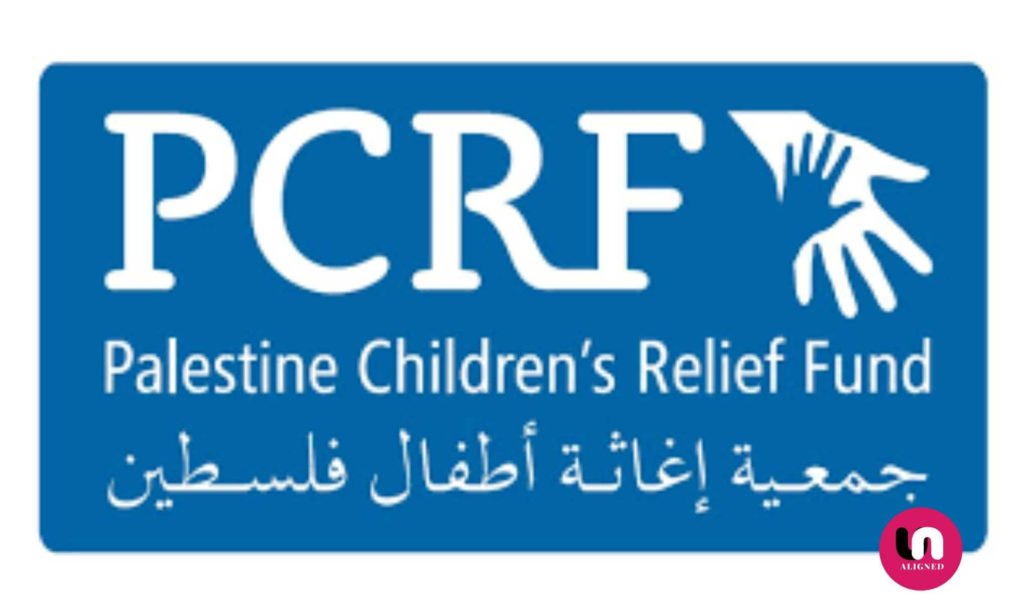
According to the Palestinian health authorities, during the recent clashes between Israel and Gaza, at least 254 Palestinians including 66 children were killed. This is while more than 1,900 are reported to be wounded.
For 30 years, the Palestinian Children’s Relief Fund (PCRF), a nonpolitical humanitarian relief organisation, has provided the children of Gaza with free medical care. However, on the 17th of May, their main Gaza office was arbitrarily targeted by the Israeli military.
Hence, now more than ever, the Palestinian Children’s Relief Fund needs your support. If you are in a position to financially contribute to the PCRF and its activities, please click here to access their website.
While fundraising is important, it is only the first step: donations alone can never help to end the blockade. They won’t end the occupation and they won’t end the apartheid.
Please also consider becoming a free member of UN-aligned; your support will allow us to have a greater impact in combating injustice around the world and work towards a fairer United Nations.
“A preventable tragedy”: How dementia became the catalyst that eroded Noor’s family
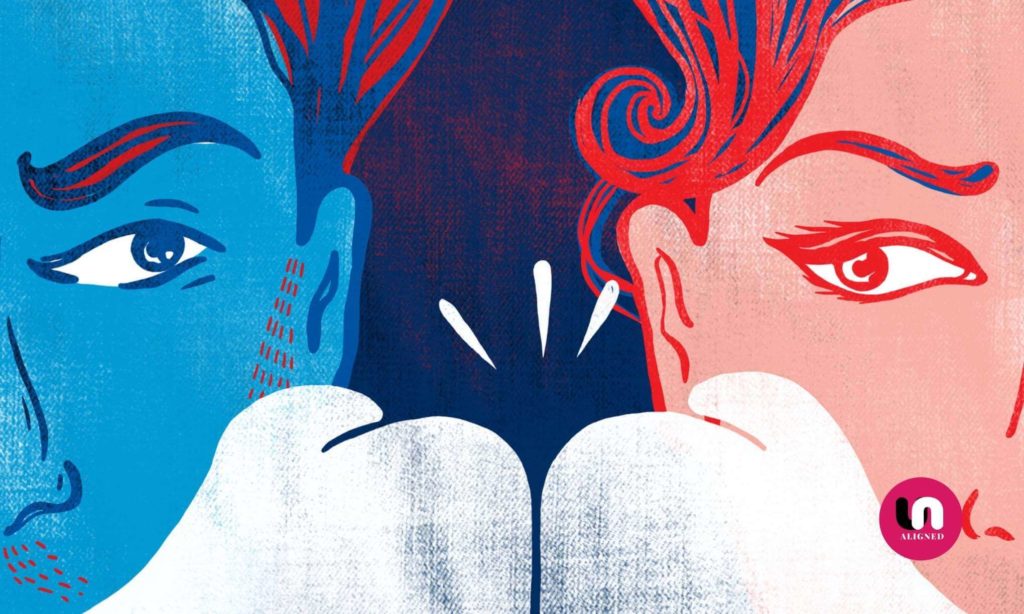
By Ruby Goldenberg
Imagine visiting your mother or father in their home. When you arrive, you discover that they are in distress in front of the television. They look at you with fear in their eyes; you look at them and then to the ordinary television screen, not understanding the problem. Your mother or father imagines that the people on the television are home intruders, and they ask you how those people got into the house.
This scenario played out for Noor and her mother in London in 2017, they had moved from North Africa to the UK together in the 1970s.
Back in her hometown, Noor’s mother- a vivacious, vibrant and fiercely independent lady, ran a successful kitchen in a centre for visually impaired people. With a taste for adventure, she took charge of the family’s decisions including the move from a remote African village with her young family to the metropolis of London. Here she worked as a chef serving Arabic cuisine. She worked in restaurants on the glossy streets of Knightsbridge and Edgware Road, London.
Now the same lady stood in front of Noor, agitated and without the mental capacity to organise her own thoughts into actions.
Could it really just be forgetfulness in her mature age and a general disorientation, or was something more insidious going on?
Noor’s mother was never confined by society’s expectations of women at that time. She would pack her seven children into a van to travel around their home country in the summertime. “If you want something, you get it for yourself.” That was her motto. However, this vivacious spirit had become a confused shadow of her former self.
“It’s Dementia” the doctor confirmed. Now all the instances of forgotten handbags and nonsensical questions had an explanation. But the sense of despair in coming to terms with her mothers incurable condition was just the start. A Dementia diagnosis was the catalyst that eroded and eventually destroyed the family unit, all of which Noor now understands was preventable. Noor wishes to share her story as a warning to other families.
It’s not unusual for children to care for their parents in old age. Noor was taken aback that in a time when one might assume a group of seven siblings would join together, instead all seven siblings fell victim to their own mother’s lack of planning.
The changes happened fast and all at the same time.
When Noor’s mother received her diagnosis, she was living independently. Her condition had deteriorated but she was deemed to be of sound mind enough to make her own decisions. After the diagnosis, a Lasting Power of Attorney (LPA) was drawn up. This is a legal document that let Noor’s mother appoint two of her children to make decisions on her behalf for when she would lack the mental capacity to do so. However, the unappointed siblings contested the LPA.
The LPA which had outlined some of Noor’s mother’s wishes was relinquished in 2018. Moreover, by then she had also lost most of her ability to make her own decisions. Settling on a suitable care plan, therefore, became an issue. A void opened owing to everybody’s own interpretation of what would be best. There were so many points to consider, such as where she should stay, in which country and with whom; as well as how to fund her care. Tensions arose and a bitter battle became a breeding ground for the worst aspects of human nature. Conversations about welfare became a tangled mess with money often at the root of it. A war waged on, precious time together was lost.
Noor’s mother has, by all accounts, had a successful life. She understood the meaning of hard work and had built up an estate in her 50 years in the UK. She likely believed that she had prepared herself for old age. She had assets to cushion her into retirement and could enjoy her resources to grow old gracefully. However, the reality was different. Without the correct documents to protect their mother in place, money and deeds had disappeared following the diagnosis. Time that could have been spent being close to their mother and cherishing the good moments was spent engaging in malicious legal feuds over her estate.
Noor took the reins to become her mother’s carer. Although her brothers supported Noor, she did not have the full support of her whole family.
Noor was in the messy middle of watching her outgoing mothers mentality change into that of around a 3 year old without much warning.
With the help of specialists, Noor was beginning to understand her mother’s condition better. She did still have memories but largely sensory, piqued by familiar music, sights and smells from her early childhood. She still had a desire to be busy, outside, and doing something, but without the ability to coherently follow through because of the confusion in her mind.
Since their mother’s only memories were from her early childhood in North Africa, the cold and grey streets of London increasingly upset her even further. Her language reverted back to the dialect and accent she would have spoken in her hometown when growing up.
Noor and her brother organised a brief respite for their mother in her home country last year, hoping that she would feel more at ease. What should have been a short break has stretched into 2021 as Noor’s other siblings were eager to have their mother in their care too. Noor is not content with the sporadic shuffling of her mother between siblings and refers to it more like a football being kicked from pillar to post. But without an LPA to solidify their mother’s wishes, all her health, care and financial decisions were open to the individual speculation of her seven children.
Each family has its own politics and siblings have their own role to play. One might consider themselves the mediator, the leader, or the hot-headed one, but sadly, in times of crisis our flaws can be heightened and any negative dynamics in the family intensified.
Noor is still picking up the pieces from the diagnosis of her mother four years later, and getting back to herself after caring for her mother, and coming to terms with the fact that she will not be able to have a coherent one-to-one conversation with her mother ever again. In 2017 nobody in her family spoke about Dementia or really knew what it was, let alone consider making provisions in case it would happen to their parents. Previously Noor had thought that she’d rely on her family, culture and religion for protection in the hard times but those expectations had dissolved in the face of a crisis.
No matter how successful Noor’s mother may have been and how cherished and special she is to her children, Noor has agonised over the fact that her mother’s brilliant life has amounted to a sad final chapter of her story, with her children still locked in a stalemate about their mothers care and finances, rather than honouring who she was and who she had become by creating new memories while there was still time.
Plan before it’s too late
Following the disagreements that have shaken the family, Noor urges us all to have that conversation with our elderly parents to protect them, and our adult children to protect us.
Planning for one’s old age is paramount for us all since any of us can potentially become incapacitated.
The wishes regarding a person’s care and finances should be crystallised in a legal document as soon as possible and while of sound mind. In the UK this is done via an LPA in addition to a Will, and these should be written before any diagnosis may or may not occur. Putting these measures in place while we are well ensures that our wishes will be respected, met, and carried out by those we choose and without interference. To have such a conversation after a diagnosis could be too late, and creates space for disagreements.
Noor’s mum was a very powerful woman- her power ironically became most evident after diagnosis, since the matriarch of the family was no longer there to maintain order and keep everyone in line. The saddest thing for Noor is that her brothers and sisters were never given the chance to grieve the rapid loss of their mother’s mind, and the loss of her entire inhibitions, the family did not pull together to celebrate their mother’s life, nor did they get the chance to grieve the loss before her cognitive dissonance. The changes happened fast and all at the same time. It was without warning and difficult to take seriously. Had her documents been in order, they could continue their time together now honouring their mother’s wishes collectively.
For security reasons the author of this piece has chosen to use a pseudonym for Noor real name.
The Great Gatsby – The Valley of Ashes & The Waste Land
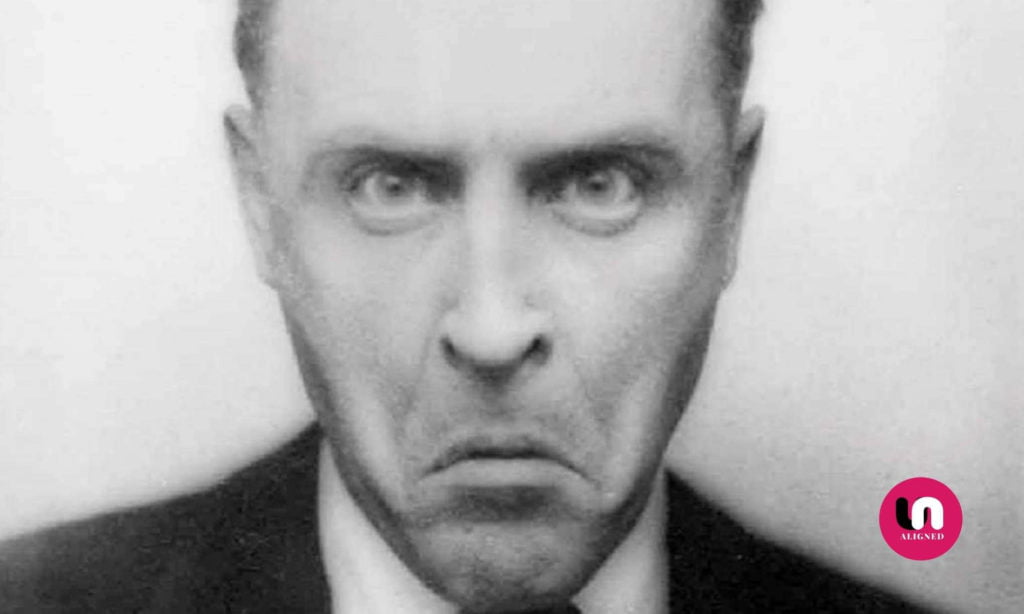
By Alex Liberto
The situation that plagued the world after World War One was one of callous apathy and emotional aridity. My last article on T. S. Eliot’s poetic portrayal of the early 20th century ended with the line, “The dehumanisation of the modern world is complete.” This ‘dehumanisation’, which Eliot portrayed as a waste land in his poetry, was also described very clearly in prose by F. S. Fitzgerald in his novel The Great Gatsby.
Fitzgerald was a very different individual and a very different writer. Like Eliot he was an American, however his focus was not on the ‘Unreal City’ of London, where the inhabitants moved around like dead souls from Dante’s Inferno:
Unreal City,
Under the brown fog of a winter dawn,
A crowd flowed over London Bridge, so many,
I had not thought death had undone so many.
Sighs, short and infrequent, were exhaled,
And each man fixed his eyes before his feet.
Fitzgerald’s characters, also morally and spiritually dead, were American through and through. They were like zombies moving around from party to party, ignoring the cultural and moral aspects of life. The author was almost prophetic, in that he gave a name to his time, the Jazz Age, and lived through it as though he were a character from one of his books. Besides his best known novel, The Great Gatsby (1925), he also wrote four novels, The Beautiful and Damned(1922), This Side of Paradise(1920), Tender is the Night(1934), and The Last Tycoon (his last and unfinished work which was published in 1941). He also wrote five volumes of short stories, which include The Crack-Up, and a selection of autobiographical pieces.
The Jazz Age, also known as the Roaring Twenties, was characterised by an intense ‘joie de vivre’ that bordered on the extreme.
Extravagant parties were held regularly and fancy nightclubs, where everybody tirelessly danced the Charleston, were very fashionable. Fitzgerald captured this rollicking lifestyle in The Great Gatsby.
Naturally things changed with the Great Depression. The fleeting splendour of the twenties became a mere memory. Life turned into a struggle for survival and the country fell into the hands of the relief program. The 1929 economic slump was inevitable and Fitzgerald had prophetically foreshadowed it through his depiction of the putrefaction of the moral and social fibre of the society that had preceded it.
The Great Gatsby is a short novel that depicts the essence of the 1920s lifestyle and the frivolous importance society placed on money and material things. Fitzgerald managed to highlight the contrast between the grandeur and the illusion of the period. The United States, although very different from Great Britain, was undergoing the same dehumanising aridity that T. S. Eliot had so strikingly depicted in his The Waste Land. Eliot said about Fitzgerald’s novel: “It has interested me and excited me more than any new novel I have seen, either English or American, for a number of years.”
Fitzgerald was certainly inspired by Eliot’s The Waste Land, as James E. Miller suggested: “It is possible that [Eliot] saw in The Great Gatsby a reflection of some of the kinds of images of the horror of modern life that he himself had given currency in his poem”. Indeed, in the novel we have the Valley of Ashes that ominously lies beyond the knowing eyes of Doctor T. J. Eckleburg, a forgotten billboard by the side of a road. This is the same metaphorical landscape of Eliot’s Waste Land which symbolically represents the social and emotional aridity humankind has spiralled into. The Waste Land and The Great Gatsby both portray this dusty vastness where nothing thrives. The old forgotten billboard, with the looming eyes of Doctor T. J. Eckleburg, is seen as an old forgotten God. A God who has no place in an emotionally dead society.
But above the gray land and the spasms of bleak dust which drift endlessly over it, you perceive, after a moment, the eyes of Doctor T. J. Eckleburg. The eyes of Doctor T. J. Eckleburg are blue and gigantic—their retinas are one yard high. They look out of no face, but, instead, from a pair of enormous yellow spectacles which pass over a non-existent nose. Evidently some wag of an oculist set them there to fatten his practice in the borough of Queens, and then sank down himself into eternal blindness, or forgot them and moved away.
Myrtel’s husband, George, believes that they are the eyes of God. He says that ‘God sees everything’. The ashes that frame those eyes are symptomatic. John W. Bicknell considered that: “This grotesque image, reappearing throughout the story, eventually becomes a symbol of what God has become in the modern world, an all-seeing deity – indifferent, faceless, blank.” This image is similar to Eliot’s Tiresias who in The Waste Land appears as the all-seeing eye, although being old and blind.
I Tiresias, though blind, throbbing between two lives,
Old man with wrinkled female breasts, can see
At the violet hour…
Blindness is a recurring theme in both Eliot and Fitzgerald. The Valley of Ashes, between West Egg and Manhattan, and the Waste Land in the “Unreal City”, make up the humus of both works. The characters are all hovering around aimlessly within a lifeless existence. The backdrop is a barren expanse in which they bump into each other in a human cycle of blindness. The absence of morality and spiritual values together with apathy and indifference create the stage on which the characters of both texts perform their robotic actions.
Both authors emphasize the grandeur of past civilizations, in Europe and in America, to contrast the squalor of modern life. The past is gone and will never return, however much Gatsby wants it to. Nick tells Gatsby, “You can’t repeat the past,” Gatsby replies, “Why of course you can.” Gatsby’s belief that he is able to repeat the past simply substantiates his disconnect from reality. Gatsby’s house is often compared to that of a feudal lord. His foreign clothes, antiques, and furnishings all suggest a nostalgia for the British aristocratic lifestyle. This dream of returning to a glorious past, however, results in a superficial imitation of the old European social system that America had left behind.
Gatsby’s tragic end is the inevitable outcome for all those whose belief lies in materialistic wealth and blind social climbing. Only an ‘old’ established reality can survive in this scenario, people like Tom and Daisy Buchanan. They are unscathed and invulnerable because they do not need to search for material wealth due to their inherent class privilege. However, Fitzgerald clearly suggests that the American society has fallen prey to the dictates of modern squallor. Tom’s immoral behaviour and the general debauchery of the upper classes highlight the breakdown of past values. For society to survive, Fitzgerald points out, it must strive for a new social order with the objective to overcome the decadence of American cultural and moral values. By both vanquishing and remodeling the past, humankind may eventually reach its haven.
Gatsby believed in the green light, the orgastic future that year by year recedes before us. It eluded us then, but that’s no matter—tomorrow we will run faster, stretch out our arms farther. . . . And one fine morning— So we beat on, boats against the current, borne back ceaselessly into the past.
The Weight of the Soul
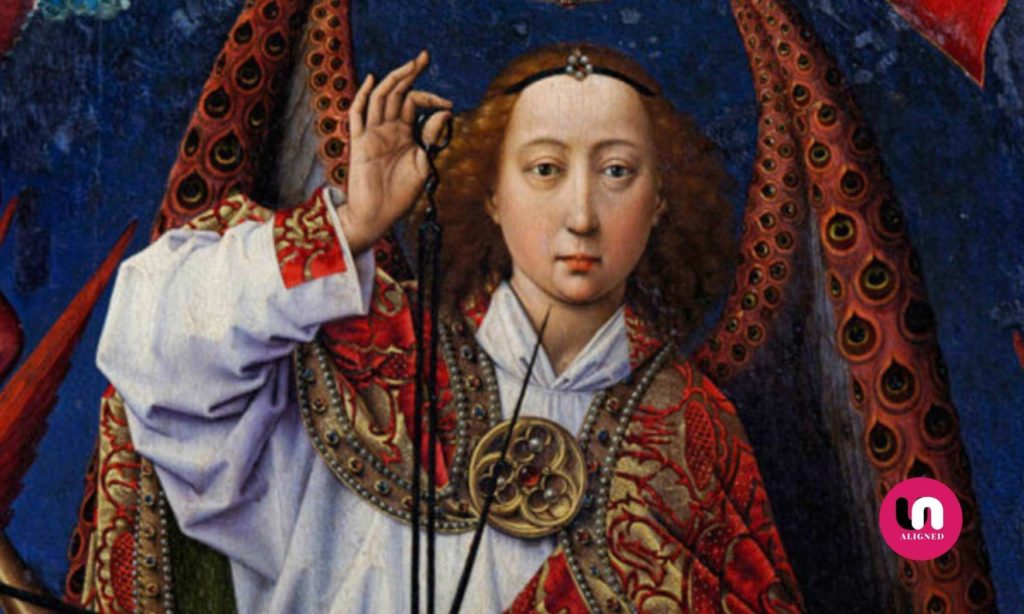
By Carla Pietrobattista
Read this article in Italian (Leggi questo articolo in italiano) →
Interpreting art’s whispers
The creative process that precedes the birth of a work of art arises from the need to convey a message. Obviously this way of communicating lends itself to an interpretative multiplicity that changes in accordance with the time in which the work is observed and the sensitivity of the observer. Each of us has different ways of “reading” the various creations, but I firmly believe that to those who can look at beauty with amazement, art is primarily the celebration of beauty. Every artwork transmits emotions and sometimes unexpected knowledge…
It is not necessary to go to museums or where art is cataloged to be able to observe it and enjoy its vibrations. There are places, often far from official intellectual and tourist circuits, enveloped in silence, which exude beauty and push us to think, to absorb; among these we can certainly include the church of Santa Maria in Valle Porclaneta in Rosciolo dei Marsi in Abruzzo, Italy. This stupendous structure, which existed since at least 1048, is conceived in such a way as to appear perfectly integrated into the surrounding environment both in the choice of materials with which it was built, and in its main structural lines that accompany the inclination of Monte Velino behind his back.
The interior of the church, which was once part of a Benedictine monastery, is Romanesque in style. Its walls and furnishings are adorned with real masterpieces of exquisite simplicity that do not detract from the plan of the building, but rather enhance it. This is often the case with sacred constructions of the Romanesque age. Over the course of its long history, various frescoes have been painted on the walls of the church, some are elegant and well-made, while others are less refined and of a more popular nature and execution, but equally interesting. Among the various paintings of the building there are two depicting the archangel Michael. Like other works found here, these hide meanings and readings that are different from the more immediate ones. They go beyond the local geographical boundaries and enter a broader discourse of the general culture of the medieval era that was intrinsically linked to faith. This representation, which is easily recognisable, shows Michele with the iconographic elements traditionally attributed to him: the spear and the balance.

In a previous article, St. Michael and the Shepherds, I examined the image of Michael with a spear, underlining the value that such a representation assumed in the world of shepherds. I would now like to turn to the other iconographic element closely linked to Michele: the scales. (Before even starting to talk about the subject, I would like to point out that issues of this magnitude would require a much broader examination).
St. Michael the Psychopomp
The fresco that I am going to examine is a triptych from the early fifteenth century reproducing Michael, the Virgin and Child and Saint Leonard of Noblat. The archangel is depicted with his finely decorated warrior’s robe (let’s not forget his role as ‘princeps militiae’) and holding the spear with which he defeats evil; in his other hand he carries the scales with which he weighs souls.
This type of representation has always fascinated me, especially for the interpretations and connections to which it lends itself. At first glance, the figure of Michael holding the balance as if he were in a common market, may seem to conflict with the elegance of the image of Michael holding the spear. In reality, this element is full of meaning: it represents the princeps militiae in his role of psychopomp (a guide in the immediate afterlife).
Often, medieval art scholars who have examined Santa Maria in Valle Porclaneta have focused mainly on the various architectural elements present in the church, emphasizing the oriental elements of some of them. However, they have frequently overlooked the presence of this iconographic element, certainly not of Western origin, which can say so much about the cultural ‘contaminations’ of the past.
Psychostasis: a glimpse into the distant past
In fact, it is in the East that we encounter Psychostasis for the first time, a particular ceremony that ancient peoples imagined took place in the kingdom of the afterlife, during which the heart or soul was weighed. As soon as this ceremony is mentioned, the mind flies to the Egyptian culture, and to how this people imagined its otherworldly journey. The importance that was given to this topic in Egypt is enormous. Most of the artistic works of the Egyptians, monumental or not, were born precisely by virtue of the desire to guarantee, in a certain sense to build, a worthy life after death.
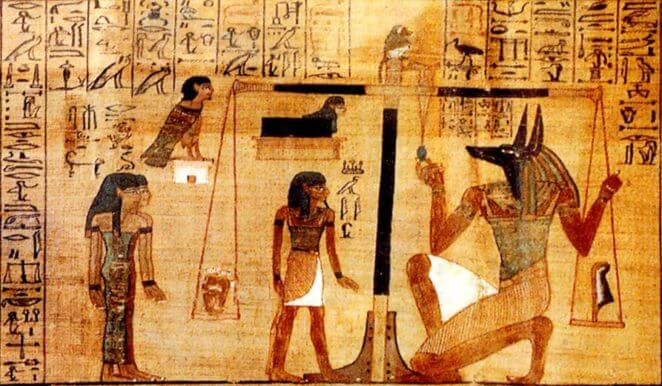
Chapter 125 of the Egyptian Book of the Dead speaks precisely of the weighing of the heart of the deceased. The outcome of this ceremony would have decided whether the deceased was going to be allowed to reach the Fields of Rushes, or not (fields located in the sky but in contact with the terrestrial horizon, where the dead could have led a life similar to that on earth). This fundamental stage of the otherworldly journey almost always took place in the presence of the god Anubis, or on occasions, the god Horus. The heart of the deceased was placed on one of the two plates of the scales in order to be judged, on the other a feather was placed as a counterweight, symbol of the goddess Maat, who represented justice and the balance that governs the cosmos. In order for the soul to reach its destination, it had to weigh exactly as much as the feather.
A ceremony similar to the Egyptian one, but much less known, is found in Zoroastrianism, (a religion born from the teachings of the prophet Zarathustra, for many centuries the dominant faith of the peoples of Central Asia). This cult also provided for a judgment after death through the weighing of the soul. The rite in this case took place in the presence of the god Mithra. Psychostasia is also present in Islam and in some passages of the Jewish sacred scriptures. In the Christian tradition it leads to the figure of the archangel Michael.
The one who examines souls
In the Apocalypse, Michael is described only as the one who examines souls, but without mentioning the task of weighing them, so that the image of the balance is not present. Only with the passage of time was this attribute assigned to him, in fact, to arrive at the new role, it was necessary to wait for a later Christian literature.
According to St. Dionysius, Michael weighs souls by showing God the value of the actions of the deceased, thus offering the evidence for the pronouncement of the sentence, a task that obviously remained with God.
St. Thomas Aquinas tells us that Michael remains close to the souls until the sentence is pronounced, holding in his hands the scales of justice with which the souls themselves are weighed. According to St. Bonaventure, Michael protects his devotees both in life and during the afterlife evaluation.
The Christian literature that presents Michael as a companion or psychopomp is extensive and I have limited myself to citing the most important examples. Obviously, the introduction of this same role in the frescoes corresponded to the spread of these texts. Let’s not forget that the religious representations, in a historical period in which few were able to read and write, had the same task of cultural diffusion that books had.
Such an important task as that of presenting souls to judgment could only be entrusted to Michael. In fact, the faithful often turned to him in prayers and invocations in the past for this very reason. To explain this strong trust in the archangel, it is necessary to examine his name, which is also his cry in battle during the fight against evil: ‘Who is like God?’
The idea of the balance used to weigh souls and the value of human actions is fascinating, regardless of one’s personal beliefs. Apparently this gesture may seem simply a legacy of a distant past, during which a life of poverty made man find answers only in faith. In reality it is synonymous with something else. I think it has to do with our sense of being unique from a divine perspective, whilst never abandoned.
Ancient questions
Even today we are constantly searching for answers, we have been able to explain almost everything related to the physical world, but we still ask ourselves ancient questions. In some ways the questions remain the same and the only difference is the means and knowledge at our disposal to seek answers. A striking example of this is offered by Dr. Duncan Macdougall, an American doctor who in 1907 tried to measure the weight of the soul described by the ancients. The doctor used state-of-the-art machinery, with which he compared the weight of the terminally ill with the weight of their bodies after death. The results, with due approximations (although nowadays they are not considered scientific), have provided the doctor with the answer of the famous twenty-one grams that have found widespread success both in popular culture and in various artistic expressions.
It is difficult to reach conclusions with arguments of this kind, but I can affirm that the strong thirst for knowledge, which has always characterised man, combined with an equally strong need to control all that is tangible, has brought us to an absurd quest for answers in religion, which offers very little that is tangible. We have always projected our need to classify objects and people, giving them a very material value, even when dealing with the most elusive and least known mysteries of all: death and our soul.
A look into the Iranian Turkmen Sahra – in Pictures

In another gallery from Iran, Anahita Ahmadi takes you through a journey of Iranian Turkmen Sahra
Surviving the victory: life in the war-torn Gaza Strip – in Pictures
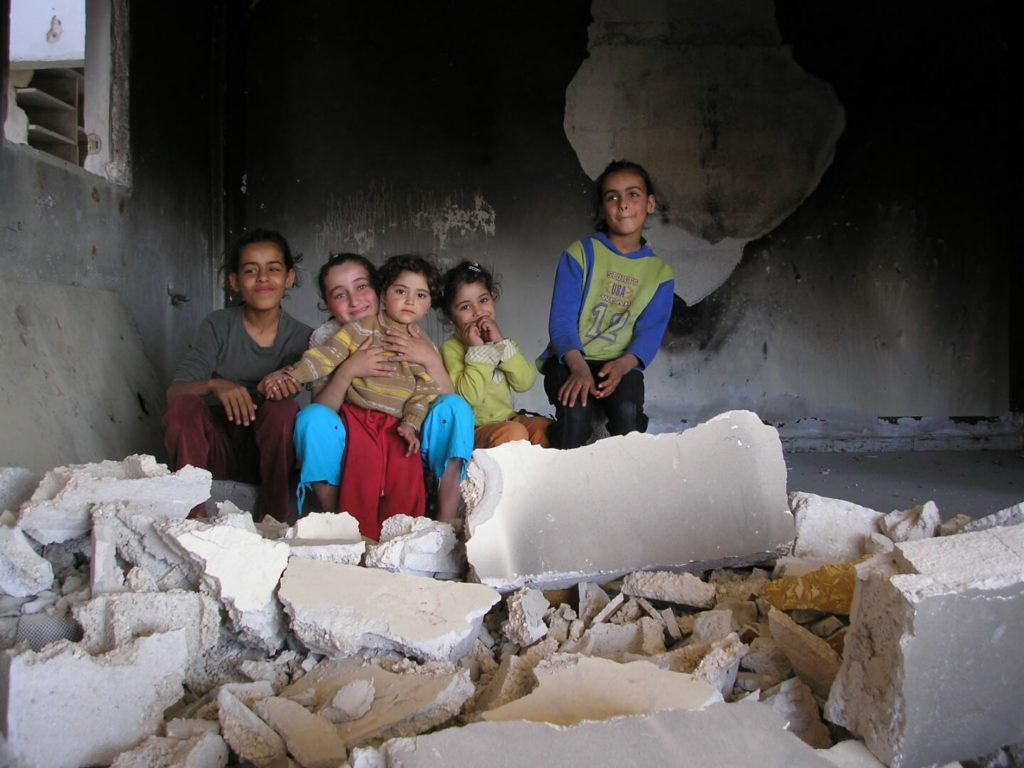
Both Israel and Hamas claimed victory over the conflict that lasted for two weeks, took the lives of more than 250 people from both sides, wounded thousands and destroyed buildings including residences, schools and hospitals. It is difficult to see the victory in a conflict that has continued for decades and taken its toll on the civilians. This gallery shows the harsh living conditions in the war-torn Gaza Strip.
What you may have missed in May 2021
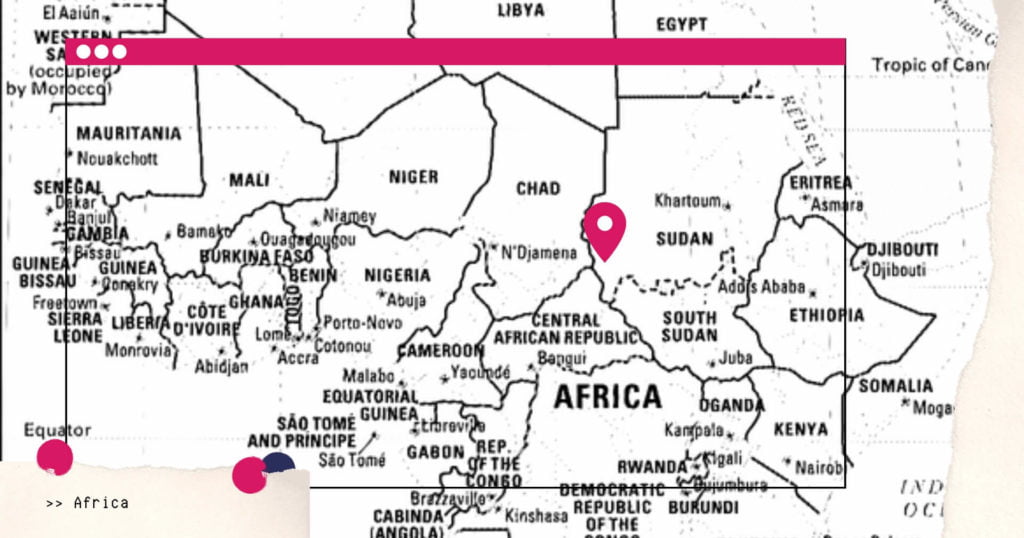
AFRICA
03.05.21: Burkina Faso. At least 30 people were killed by suspected jihadists in Kodyel village in the Komandjari province near the border with Niger. The assassins went from house to house shooting people and setting their homes on fire.
17.05.21: Namibia. The government’s own advisory panel has recommended the scrapping of the country’s sodomy laws, paving the way for the law to be repealed by the end of this year.
24.05.21: Democratic Republic of Congo. Thousands of people have been left homeless and at least 15 have died due to a volcano eruption near Goma in the east of the country. The volcano’s activity is showing no signs of abating.
24.05.21: Mali. Col Assimi Goïta, who was responsible for last year’s coup, has staged another one, arresting President Bah Ndaw and Prime Minister Moctar Ouane, accusing them of having failed in carrying out their obligations.
30.05.21: Mali. The Economic Community of West African States (ECOWAS) has suspended Mali and rejected Colonel Assimi Goita, leader of the Malian military junta, after having invited him to a crisis meeting in Ghana. The suspension could cause serious problems for the economy of the country.
30.05.21: Nigeria. Between 150 to 200 students have been kidnapped from a school in the country’s Niger State. This latest abduction is part of a growing trend by gangs seeking huge profits from ransoms.
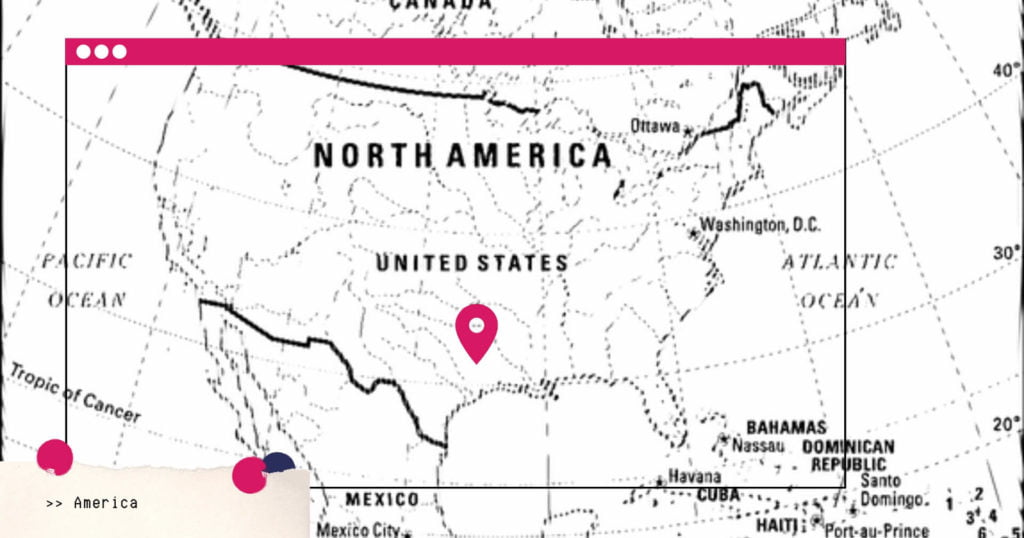
THE AMERICAS
03.05.21: Colombia. At least 17 people have died, including a member of security services, as riots over a controversial tax reform bill spread across the country. The unrest has led President Ivan Duque to withdraw the bill.
04.05.21: Mexico. A rail overpass in Mexico City collapsed over a busy road killing at least 23 people and injuring many others.
04.05.21: Mexico. The murder of landowners and activists Jesús Robledo Cruz and María Jesús Gómez Vega on April 29 and death threats to other activists opposing illegal mining in Sonora has sparked protests and demands for greater protection from the government.
04.05.21: USA. Philanthropists Bill and Melinda Gates have announced their divorce, but added that they would continue working together on their humanitarian projects.
06.05.21: Brazil. About 25 people and a police officer were killed in a police operation against drug traffickers in Rio de Janeiro favela.
12.05.21: USA. Republican grandee Liz Cheney (daughter of ex-US Vice-President Dick Cheney), who was Chair of the House Republican Conference, the third-highest position in the House Republican leadership, was voted out from her position by House Republicans for daring to criticise former President Trump and his false claims of vote rigging.
13.05.21: Mexico. The discovery of a new species of dinosaur has been confirmed by a team of palaeontologists who had been analysing remains found almost a decade ago. The newcomer is a crested dinosaur that has been named Tlatolophus galorum.
19.05.21: Mexico. About 70 bags of human remains were found in Tonalá, Jalisco. So far, 11 bodies have been pieced together. Mass killings, often carried out by drug dealers, are not uncommon and similar finds have come to light in the last few months alone.
26.05.21: USA. Sam Cassidy, a public transit rail yard employee in San Jose, California shot and killed eight co-workers before shooting himself. One colleague survived the attack.
28.05.21: Colombia: Following another four more fatalities caused by escalating riots that began last month, President Ivan Duque has deployed the military in the western Province of Valle del Cauca in an attempt to restore order. Protests had been triggered by unfair tax reforms, but have since taken on wider grievances against the right-wing government.
31.05.21: USA. Today marks the 100th anniversary of the Tulsa Race Massacre, which lasted two days and resulted in hundreds of injuries and several deaths when white mobs spurred on by the authorities ransacked an affluent black neighbourhood.
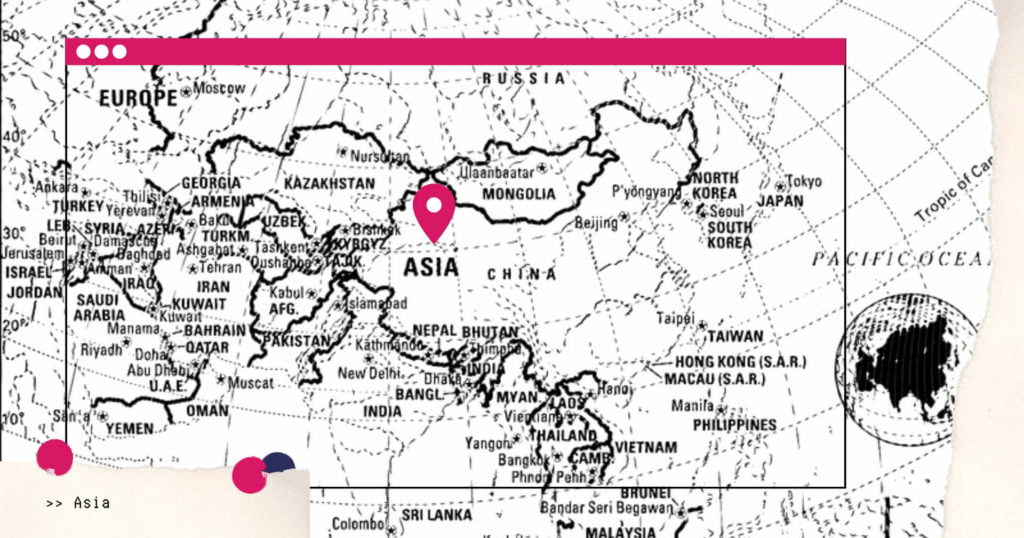
ASIA
06.05.21: The Maldives. A car bomb injured former President Mohamed Nasheed. Currently, Nasheed, the speaker of the Maldives parliament.
07.05.21: Occupied East Jerusalem. About 180 Palestinians were injured in clashes with Israeli police at the Al-Aqsa Mosque and many had to be hospitalised. Tensions had been rising over the last few weeks over what Palestinians claim is Israeli provocation and increasing evictions.
08.05.21: Afghanistan. Over 80 people, mostly girls, were killed when a series of bombs were detonated in Sayed Ul-Shuhada school in Kabul. The school, which supports impoverished children with their education, was targeted by Islamist extremists opposed to the education of girls and women.
14.05.21: Israel/Gaza. Israeli airstrikes have killed scores of people, including women and children in Gaza, while rockets fired from there towards Israel have killed about eight. Today Israel intensified its attacks despite international calls for restraint.
20.05.21: Israel/Gaza. After 11 days of intense fighting, a cease-fire was agreed by both sides in the conflict between Israel and Hamas. This recent flare up has cost the lives of about a ten Israelis, including two children and over 200 Palestinians, 63 of whom were children. The truce will come into effect tomorrow.
20.05.21: Afghanistan. Officials announced that at least 13 people have been killed by a series of roadside bombings, including nine members from the same family. Additionally, three men were ordered out of a bus by militants in western Afghanistan and shot dead.
27.05.21: Israel. Michelle Bachelet, the UN High Commissioner for Human Rights, launched an investigation into Israel’s recent bombing spree on Gaza, suggesting the operations could involve war crimes.
30.05.21: Israel. Benjamin Netanyahu may be facing his most serious challenge yet as his rivals from the left and the right of the political spectrum have agreed to form a coalition. Netanyahu is attempting to convince right-wingers that partnering with the left would be a betrayal of their ideas.
31.05.21: China. Five years after having eased the one-child policy to allow for two children per family, the government has announced that it is now relaxing the law further to permit three children per household. Despite having a population of 1.4 billion, the largest in the world, the aging population is starting to cause serious problems for the national economy.
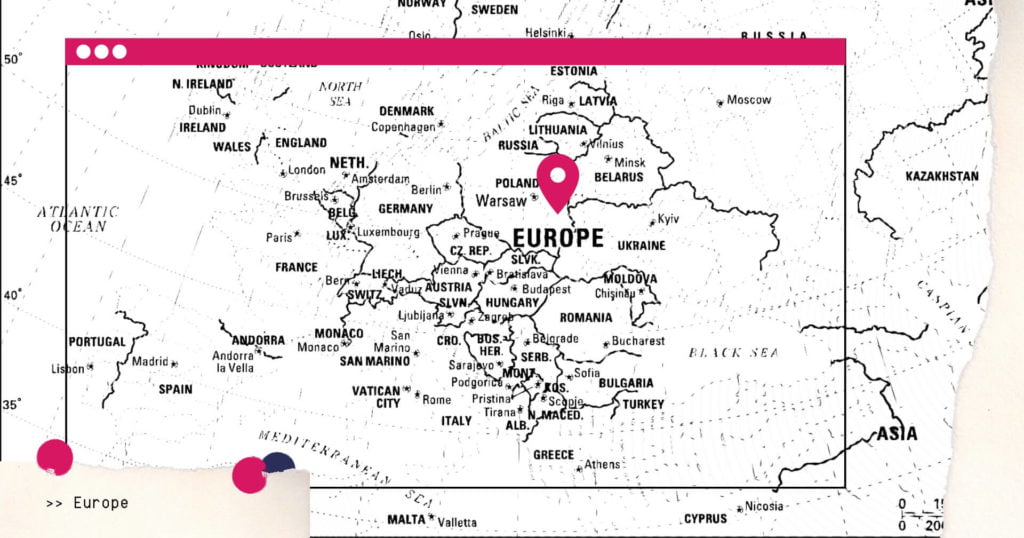
EUROPE
11.05.21: Russia. Seven children and two staff members were killed in a shooting at a secondary school in Kazan. Over 20 others were injured in the attack. Police have arrested a 19-year-old suspect.
19.05.21: Spain/Ceuta. Thousands of migrants have descended on the Spanish North African of Ceuta from Morocco over the last few days causing serious problems for the Spanish authorities who are blaming Morocco for easing its border controls. The Moroccan government is accused of punishing Spain for secretly allowing Brahim Ghali, the leader of the Polisario Front of Western Sahara, to be treated in a Spanish hospital.
23.05.21: Italy. 15 people in a cable car crashed 20 meters to the ground from the Mottarone mountain top, which overlooks Lake Maggiore. Only one of the passengers, a five-year-old boy, survived the accident, but he is still in a critical condition. Authorities are investigating the cause of the tragedy.
23.05.21: Belarus. Belarusian opposition journalist Roman Protasevich was arrested after his flight from Athens to Lithuania was diverted to Belarus. Authorities there used the false pretext of a bomb alert. The hijacking has caused international outrage, especially in the EU where special meetings are planned to deal with the situation.
26.05.21: Switzerland. President Guy Parmelin ended seven years of negotiations with the EU that were aimed at creating closer ties with the block. The main issues were Switzerland’s refusal to accept the jurisdiction of the European Court of Justice and its reservations on granting more rights to EU citizens settling in Switzerland.
27.05.21: Italy. Carla Fracci, one of the outstanding ballerinas of the 20th century has died aged 84 in a Milanese hospital where she was being treated for a tumour.
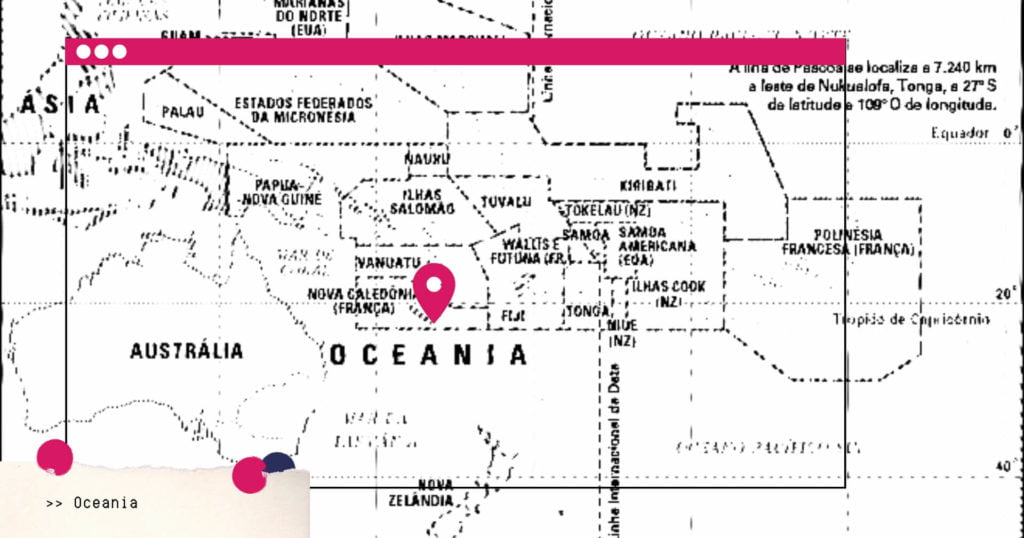
OCEANIA
25.05.21: Samoa. Prime Minister-elect Fiame Naomi Mata’afa, the first woman elected to the post, was shut out of parliament by incumbent Tuila’epa Aiono Sa’ilele Malielegaoi and the ceremonial Head of State in what she has called “a bloodless coup”.
WORLD
12/13.05.21: Bitcoin. Elon Musk announced via Twitter that Tesla would stop accepting Bitcoin transactions due to the detrimental impact on the environment caused by the mining of the virtual cryptocurrency. The move caused its price to plummet by 15% in 24 hours.
25.05.21: Bitcoin. Another tweet by Elon Musk, this time stating that he was now reassured that miners would pursue renewable energy, gave the currency a welcome 5% boost after his attack earlier this month and China’s moves to tighten its ban on its use.
27.05.21: COVID-19. A Wall Street Journal report based on US intelligence has suggested that Sars-Cov-2, responsible for the COVID-19 infection, may have not originated from animals after all, but from a Chinese laboratory. The report highlights how three employees of the Wuhan Institute of Virology were hospitalised in November 2019 just as the outbreak began. Meanwhile, US president Biden has launched a probe into the origin of the outbreak.

